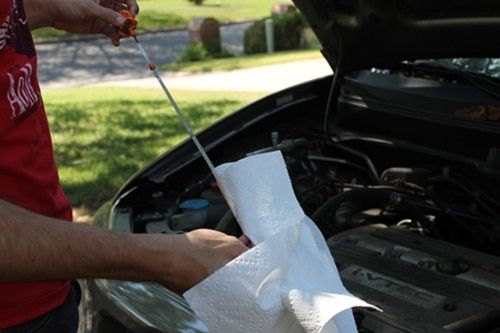Your car, much like your body, thrives on care and attention. Ignoring its signals can lead to inconvenient breakdowns, costly repairs, or even safety risks. But how do you know when your vehicle is asking for help? Here’s a detailed guide to the telltale signs that your car desperately needs maintenance.
1. Warning Lights on the Dashboard
What It Means:
When your car’s dashboard lights up with symbols like the check engine light, oil pressure warning, or battery alert, it’s your car’s way of saying, “Something’s wrong!”
Common Lights and Their Meaning:
- Check Engine Light: Could range from a loose gas cap to a serious engine problem.
- Oil Pressure Warning: Indicates low oil levels or pressure, potentially causing engine damage.
- Battery Light: Signals issues with the alternator, battery, or electrical system.
Why It Matters:
Ignoring these lights can lead to severe mechanical failures. Invest in a simple OBD-II scanner or visit a mechanic to decode the problem early.
2. Strange Noises
Sounds to Watch For:
- Squealing or Screeching: Often linked to worn-out brake pads or a failing serpentine belt.
- Knocking or Tapping: Can indicate engine trouble, such as low oil levels or problems with the pistons.
- Grinding: Points to issues with the transmission or brakes.
Why It Matters:
Unusual noises are your car’s distress signals. Address them quickly to prevent expensive repairs.
3. Vibrations and Shaking
When It Happens:
- While idling: Could indicate engine misfires or a clogged fuel injector.
- During acceleration: Suggests tire or suspension issues.
- When braking: May be caused by warped rotors or worn brake pads.
Why It Matters:
Ignoring vibrations can lead to uneven wear and tear on tires or critical suspension components, compromising your car’s performance and safety.
4. Poor Fuel Efficiency
What It Looks Like:
If you find yourself refueling more often without driving extra miles, your car might be guzzling gas due to:
- Dirty air filters restricting airflow to the engine.
- Faulty oxygen sensors disrupting the air-fuel mixture.
- Poor tire pressure increasing rolling resistance.
Why It Matters:
Addressing these issues not only saves you money but also reduces your carbon footprint.
5. Unusual Smells
Smells That Shouldn’t Be Ignored:
- Burning Odor: Could mean an oil leak or overheating engine.
- Sweet Smell: Often a sign of coolant leaks.
- Rotten Egg Smell: Linked to problems with the catalytic converter or fuel system.
Why It Matters:
Unpleasant odors are often a prelude to larger issues, from engine trouble to hazardous leaks.
6. Trouble Starting Your Car
Signs:
- Prolonged cranking before the engine starts.
- Complete failure to start despite a charged battery.
Possible Causes:
- Weak or failing battery.
- Faulty starter motor.
- Fuel delivery problems, such as a clogged fuel filter or weak fuel pump.
Why It Matters:
A car that struggles to start is unreliable and may leave you stranded at the worst times.
7. Visible Leaks
What to Look For:
- Oil: Dark brown or black puddles.
- Coolant: Bright green, orange, or pink liquid.
- Transmission Fluid: Reddish or brownish stains.
Why It Matters:
Leaks can lead to fluid shortages, overheating, or even transmission failure if left unaddressed.
8. Overheating Engine
Signs:
- Rising temperature gauge.
- Steam or smoke coming from under the hood.
- Sweet, syrupy smell of leaking coolant.
Causes:
- Low coolant levels.
- Faulty thermostat.
- Radiator issues.
Why It Matters:
An overheating engine can cause severe damage, such as a blown head gasket or cracked cylinder head.
9. Worn Tires or Uneven Wear
What to Look For:
- Bald spots or uneven tread wear.
- Cracks or bulges on the tire walls.
- Vibrations at high speeds.
Causes:
- Misaligned wheels.
- Improper tire pressure.
- Suspension issues.
Why It Matters:
Driving on worn tires reduces grip, increasing the risk of skidding or blowouts.
10. Brake Problems
Symptoms:
- Squealing or grinding noises when braking.
- Soft or spongy brake pedal.
- Longer stopping distances.
Causes:
- Worn brake pads.
- Low brake fluid levels.
- Faulty brake rotors.
Why It Matters:
Ignoring brake problems compromises your ability to stop safely, putting you and others at risk.
11. Excessive Exhaust Smoke
Colors of Smoke and Their Meaning:
- Blue Smoke: Indicates oil burning in the engine due to worn seals or rings.
- White Smoke: Suggests a coolant leak or blown head gasket.
- Black Smoke: Points to a rich air-fuel mixture, possibly caused by a faulty injector or air filter.
Why It Matters:
Excessive smoke is not just harmful to the environment—it’s a sign of underlying engine or exhaust system problems.
12. Expired Maintenance Milestones
Even without noticeable symptoms, neglecting scheduled maintenance like oil changes, filter replacements, or timing belt checks can lead to unexpected breakdowns.
Why It Matters:
Staying on schedule prevents wear and tear from escalating into costly repairs.
Your car speaks a language of lights, sounds, smells, and sensations. Paying attention to these signs ensures your vehicle stays reliable, safe, and efficient. Think of regular maintenance as a small investment to avoid massive future expenses—and to keep your ride smooth and enjoyable.
Don’t wait for your car to scream for help. Listen to its whispers, and you’ll enjoy the perks of a well-maintained vehicle for years to come!
